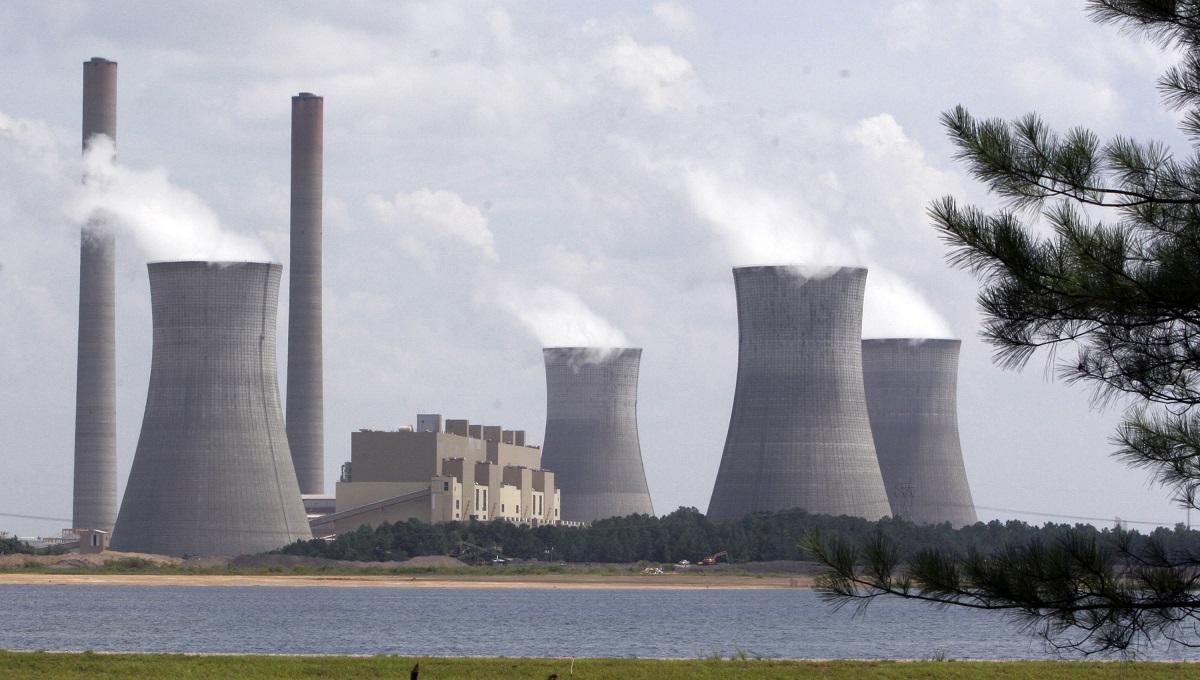Ga. Sues EPA Over Power Plant Emissions ‘Loophole’

In this July 10, 2007, file photo, the coal-fired Plant Scherer is in operation at Juliette, Georgia. Georgia Power spokesman John O’Brien said in a statement that the EPA’s startup, shutdown and malfunction rule oversteps the agency’s authority under the Clean Air Act.
Georgia is suing the U.S. Environmental Protection Agency. No, not over the recently-finalized Clean Power Plan, at least not yet.
The state is suing the EPA over another new rule, known variously as Waters of the USA or the Clean Water Rule, but that’s not what this lawsuit is about, either.
The lawsuit filed Tuesday in a Washington, D.C., court is about air pollution from power plants and other big industrial sources when they’re starting up, shutting down or malfunctioning. These are times when factories might emit more pollution as their machinery gets going or powers down.
In late May, the EPA announced that more than 30 states, including Georgia, would have to redo their regulations on emissions at those times. Georgia, along with 16 other states, is suing to reverse that decision.
“Everyone who has seen a truck move after a red light understands this issue,” Attorney General Sam Olens said in a statement. “It is important for Georgia power plants and industries to keep living up to their responsibilities on overall emissions, but this new mandate is simply the result of EPA working with the Sierra Club in yet another example of ‘sue and settle’ decision-making.”
Olens is referring to the reason why the EPA is making these changes in the first place: the Sierra Club filed a petition with the EPA, requesting that it do this.
“During startup and shutdown a big facility like a power plant will put out more emissions,” said Colleen Kiernan, the Georgia chapter director of the Sierra Club. “While it’s reasonable to let them pollute more during those times, polluters for years have been using this loophole in the Clean Air Act called ‘Startup Shutdown and Malfunction’ as a blanket excuse for any exceedance of their emissions limits that are stated in their permit.”
The Sierra Club unsuccessfully sued Georgia Power over emissions from Plant Wansley, a coal-fired power plant near Carrollton, Georgia, claiming that Georgia Power violated emissions limits thousands of times. Georgia Power argued in court that the violations were instances of startup, shutdown or malfunction, which are allowed, and it won the suit on appeal in 2006.
“Our history of compliance and operational excellence has been successfully illustrated in the courts, including the case by the Sierra Club involving Plant Wansley,” Georgia Power spokesman John O’Brien said in an emailed statement.
Georgia does indeed have startup, shutdown and malfunction regulations, and the EPA previously approved them. So Karen Hays, the chief of the Georgia Environmental Protection Division’s air branch, said the new rule from the EPA is unnecessary.
“We think it’s going to be a tremendous amount of work for no substantial environmental benefit,” she said.
Georgia Power agrees with state officials.
“EPA’s startup, shutdown, and malfunction rule oversteps the agency’s authority under the Clean Air Act and imposes significant burdens on states, utilities and other industries – increasing costs to customers while delivering little or no environmental benefit,” Georgia Power’s O’Brien wrote.
In a statement, the EPA said that it would defend its regulation in court.
It “was an important action that will ensure that states have air pollution rules in place that apply to sources at all times, including when the sources are operating during periods of startup, shutdown, or malfunction,” the EPA said.








